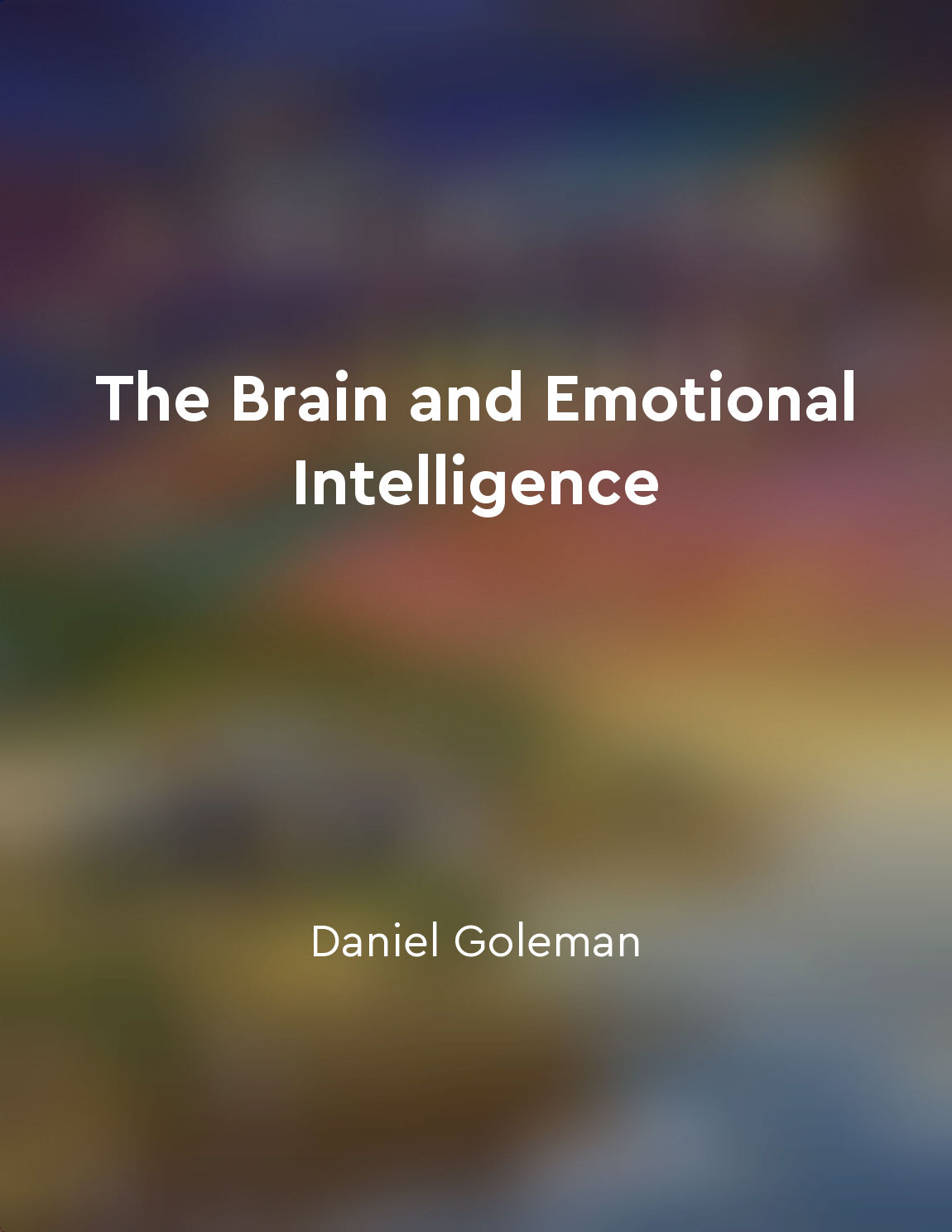Strengthen your child's developing sense of selfcontrol from "summary" of The Whole-Brain Child by Daniel J. Siegel,Tina Payne Bryson
Helping your child develop a strong sense of self-control is crucial in their overall growth and development. By understanding how their brain works and utilizing strategies to support this development, you can empower them to navigate their emotions and behaviors more effectively. One effective strategy is to engage your child's prefrontal cortex, the part of the brain responsible for self-control and decision-making. Encouraging activities that stimulate this area, such as problem-solving games or planning activities, can help strengthen their ability to regulate their impulses and emotions. Additionally, teaching your child how to "name it to tame it" can be a powerful tool in promoting self-control. By helping them articulate their feelings and experiences, you can assist them in making sense of their emotions and responding to them in a more adaptive manner. Creating a safe and nurturing environment is also essential in supporting your child's self-control development. By establishing clear boundaries and consistent routines, you can provide them with a sense of security and predictability that can aid in managing their emotions and behaviors. Moreover, fostering a strong connection with your child through positive interactions and emotional attunement can further enhance their self-control skills. By validating their feelings and providing them with a safe space to express themselves, you can help them develop a sense of self-awareness and emotional regulation. Incorporating these strategies into your daily interactions with your child can have a profound impact on their ability to regulate their emotions and behaviors. By nurturing their developing sense of self-control, you can empower them to navigate challenges and thrive in various aspects of their lives.Similar Posts
Set boundaries to protect your time
One of the most important things you can do to improve your self-discipline is to set boundaries to protect your time. By estab...
Mindfulness fosters a sense of interconnectedness
When we practice mindfulness, we become more aware of our thoughts, feelings, and sensations in the present moment. This height...

Mindfulness can strengthen emotional intelligence
Mindfulness is a powerful tool for enhancing emotional intelligence, which is the ability to recognize, understand, and manage ...
Break problems into manageable steps
Breaking problems into manageable steps is a fundamental skill in problem-solving. When faced with a daunting issue, it can be ...
Overcoming fear is a catalyst for personal growth
Fear is a powerful emotion that can paralyze us and prevent us from reaching our full potential. It can hold us back from takin...
Neural basis of empathy and compassion
Empathy and compassion are essential qualities that define our humanity. They are the driving forces behind acts of kindness an...
Cultivating meaningful relationships is essential for emotional wellbeing
In the grand scheme of life, one of the most crucial elements for our emotional wellbeing is the cultivation of meaningful rela...
Take responsibility for your actions and choices
In life, it's crucial to acknowledge that we are the architects of our own destiny. We hold the power to shape our future throu...
Family dynamics can shape us
Family dynamics have the power to mold us into the people we become. Our upbringing, the environment we grow up in, the relatio...
Foster a sense of cooperation and community
In Denmark, fostering a sense of cooperation and community is deeply ingrained in the culture. It is not just a vague concept; ...
